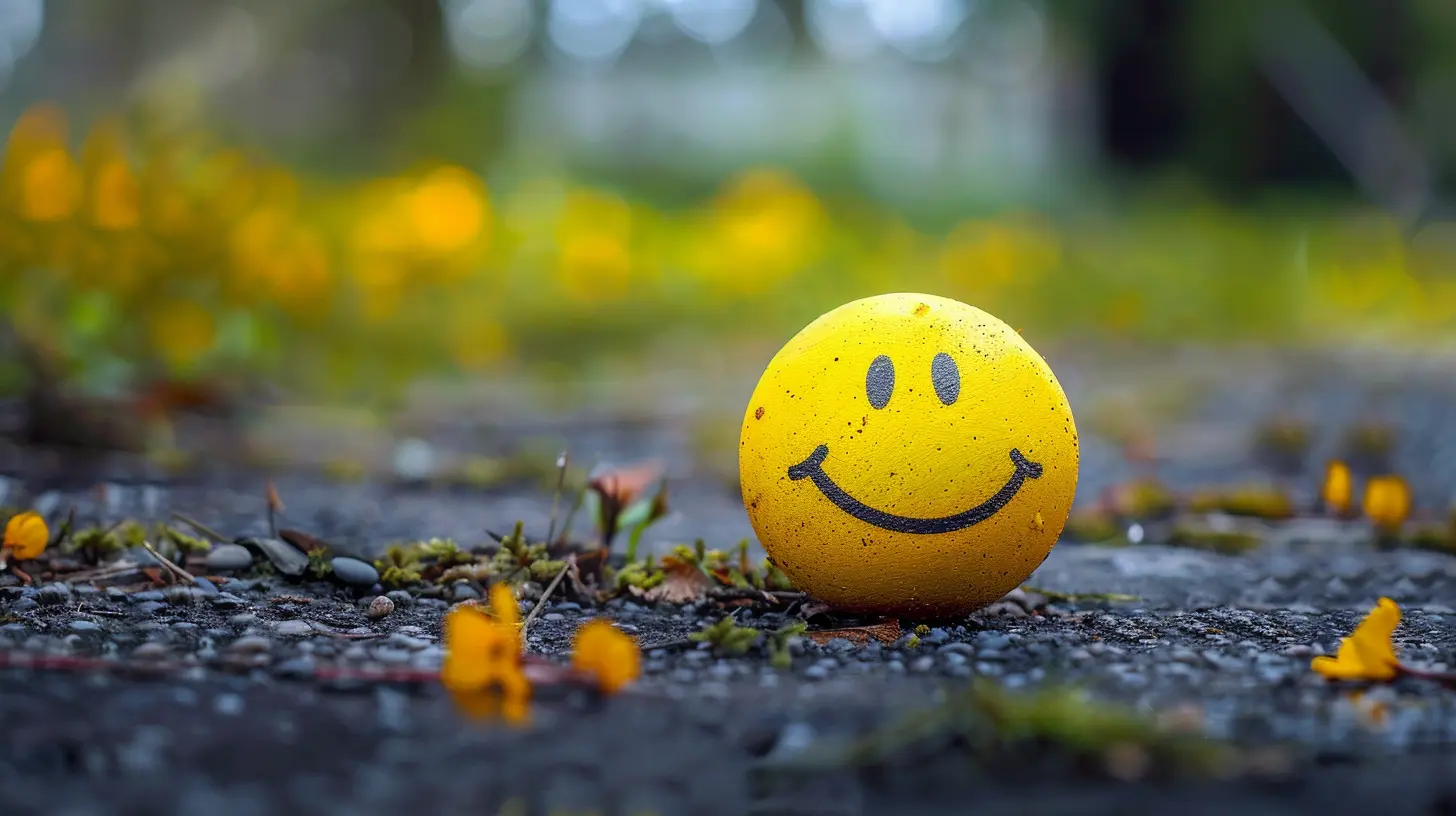The Power of Laughter: How Humor Boosts Mental Health
30 October 2025
Life can be stressful, overwhelming, and downright exhausting. But have you ever found yourself in a tough spot, only for someone to crack a joke that instantly makes things feel lighter? That's the magic of laughter! It has this incredible ability to lift our spirits, ease stress, and even improve our overall well-being. But how exactly does humor affect our mental health? Let's dive in and uncover why laughter truly is the best medicine.

Laughter: More Than Just a Giggle
We often think of laughter as just a reaction to something funny, but it's so much more than that. Laughter is a full-body experience—it engages your brain, stimulates your heart, and even works out your abs (yes, laughing can actually count as exercise!). More importantly, it has a profound effect on our mental and emotional well-being.
How Laughing Impacts Mental Health
1. Laughing Reduces Stress and Anxiety
Ever notice how a good laugh makes you feel lighter? That’s because laughter helps lower cortisol, the hormone responsible for stress. When you laugh, your body releases feel-good endorphins, which help you relax and combat feelings of anxiety. So next time you're feeling overwhelmed, try watching a comedy or sharing a joke with a friend—it might just be the stress relief you need!2. Boosts Mood and Fights Depression
Laughter is like a natural antidepressant. It increases dopamine and serotonin levels in the brain, which are neurotransmitters linked to happiness and well-being. People who laugh more tend to have a more positive outlook on life, making it easier to cope with challenges and setbacks.3. Strengthens Social Connections
Have you ever bonded with someone over an inside joke? Humor has a way of bringing people together. Whether it’s cracking jokes with friends, laughing at a funny meme, or enjoying a good stand-up comedy show, shared laughter builds stronger social connections. And strong relationships are essential for mental health, as they provide a support system during tough times.4. Enhances Cognitive Function
Believe it or not, laughing gives your brain a workout! It stimulates different areas of the brain, improving focus, creativity, and problem-solving skills. So if you're stuck on a tricky problem, taking a humor break might be just what your brain needs to refresh and find a solution.5. Helps You Cope with Difficult Situations
Life isn't always sunshine and rainbows. We all face challenges, loss, and hardships. However, humor can act as a coping mechanism, helping us navigate difficult moments with resilience. Laughing in the face of adversity doesn’t mean ignoring problems—it means finding a way to lighten the emotional burden.
The Science Behind Laughter and Mental Health
Laughter triggers a cascade of positive effects in the brain and body. Here’s a closer look at what happens scientifically when we laugh:- Releases endorphins: These are the body's natural painkillers and mood boosters.
- Lowers cortisol levels: Less stress means better emotional regulation.
- Activates the parasympathetic nervous system: This promotes relaxation and reduces tension.
- Stimulates the vagus nerve: Linked to emotional stability and a sense of calm.
Essentially, laughing triggers a biological response that makes us feel happier and more at ease.

How to Add More Laughter to Your Life
Now that we know why laughter is so beneficial, let's talk about ways to bring more humor into your daily routine:1. Watch Something Funny
Comedy shows, stand-up specials, or even TikTok videos can give you a quick mood boost. Find what makes you laugh and make it part of your daily routine.2. Surround Yourself with Funny People
Laughter is contagious! Spend time with people who make you laugh, whether it's your goofy friend, a hilarious co-worker, or a family member with a great sense of humor.3. Follow Funny Social Media Accounts
Your social media feed doesn’t have to be all bad news—follow pages or influencers that share funny memes, jokes, or comedic content to brighten your day.4. Try Laughter Yoga
Yes, it's a real thing! Laughter yoga combines deep breathing exercises with playful laughter techniques. Even forced laughter can trick your brain into feeling happier.5. Don't Take Life Too Seriously
Sometimes, we just need to laugh at ourselves. Instead of stressing over minor mistakes, try seeing the humor in everyday mishaps. Spilled your coffee? Forgot your umbrella on a rainy day? Laugh it off—it makes life a little more enjoyable.Final Thoughts
Laughter is a powerful tool for mental health. It reduces stress, boosts mood, strengthens connections, and even improves cognitive function. Best of all, it’s free and available to everyone! So the next time you're feeling down or overwhelmed, remember to find a reason to laugh—you might be surprised at how much better you feel.all images in this post were generated using AI tools
Category:
Mental WellnessAuthor:

Angelo McGillivray
Discussion
rate this article
1 comments
Sasha Wells
Laughter is a remarkable tool for enhancing mental well-being. This article brilliantly highlights how humor not only alleviates stress but also fosters connections and improves mood. Embracing joy and laughter in daily life can serve as a powerful antidote to anxiety and depression. A must-read for anyone seeking to uplift their spirits!
November 6, 2025 at 5:57 PM

Angelo McGillivray
Thank you for your insightful comment! I'm glad you found the article helpful in recognizing the powerful benefits of laughter for mental well-being.


